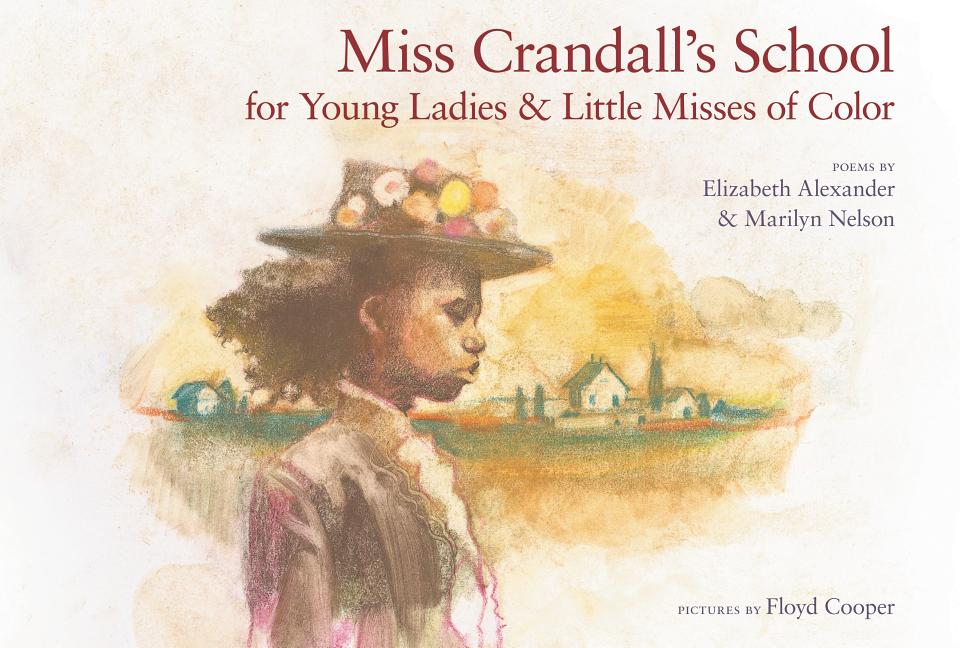Book Description
for Miss Crandall's School for Young Ladies and Little Misses of Color by Elizabeth Alexander, Marilyn Nelson, and Floyd Cooper
From Cooperative Children's Book Center (CCBC)
In 1831, Patience Crandall opened a school for girls and young women in Canterbury, Connecticut, and soon after began accepting African American students, to the anger and dismay of many Canterbury citizens. Free black families throughout the East sent their daughters to be educated while opponents in Canterbury looked for ways to close Miss Crandall’s school. When arresting Miss Crandall didn’t deter her, they turned to violence and eventually succeeded in shutting the school down. Connecticut poets Elizabeth Alexander and Marilyn Nelson imagine the feelings of the students, their teacher and families, townspeople, and others in powerful sonnets that also incorporate historical facts to mark moments on the timeline of events in the remarkable school’s brief history. The final sonnet, in the voice of student Julia Williams, concludes, “I have twice seen bloodlust / and ignorance combust. I have seen it.” The volume’s introduction is an essay giving the history of Miss Crandall’s school, and the authors’ endnote discusses the collaborative process by which they found inspiration in striving to understand many perspectives on this piece of the past. (Age 11 and older)
CCBC Choices 2008. © Cooperative Children's Book Center, Univ. of Wisconsin - Madison, 2008. Used with permission.


